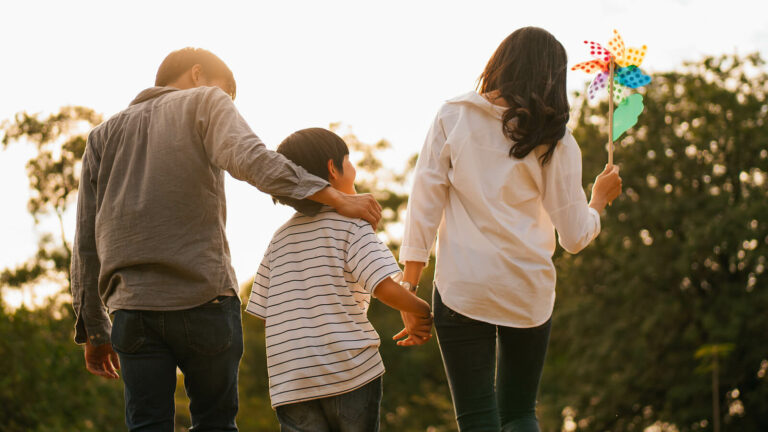EMDR Therapy for Children and Teens
"Funny, this EMDR stuff...It's like it never happened to me. It's like the EMDR put that experience in a place where it never happened. Like I used to look at a room filled with old stuff and now it's all gone. Everything is organized and I can't even remember what it was like before!"
– Esly Regina Carvalho
What is EMDR Therapy for Children?
Eye Movement Desensitization and Reprocessing (EMDR) is a method of treatment that is effective for resolving emotional difficulties caused by disturbing, difficult, or frightening life experiences. EMDR helps children overcome traumatic events. As well as other problems and symptoms children face in childhood.
When children are traumatized, have upsetting experiences or repeated failures; they lose a sense of control over their lives. This can result in symptoms of anxiety, depression, or irritability. As well as anger, guilt, and/or behavioral problems. We recognize that events such as accidents, abuse, violence, death, and natural disasters are traumatic. But we do not always recognize the ways they affect and influence children’s everyday lives. Even common upsetting childhood events can affect a child’s sense of security, self-esteem, and development. Events such as divorce, school problems, peer difficulties, failures, and family problems.

An Experience May Stay in Your Child’s Mind in a Distressing and Intrusive Way
When an upsetting, scary or painful experience happens, sometimes the memory of the experience stays “stuck” or “frozen” in the mind. The experience may return in a distressing and intrusive way. Or the child may cope by avoiding everything associated with the upsetting experience. For example, when a child has experienced a bad bicycle accident. There may be repeated nightmares, fears of trying new things, and avoidance of things associated with a bike.
Experts agree that there is one way to get “unstuck” and free from the symptoms. It is through exposure to the traumatic experience. This means facing the memories or troubling events until they are no longer disturbing. EMDR helps process troubling thoughts, feelings, and memories. So that children can return to their normal developmental tasks and prior levels of coping. Thus, EMDR being used with other childhood problems that are not caused by trauma, such as attention deficits (AD/HD), anxiety and depressive disorders. EMDR can also help to strengthen feelings of confidence, calmness and mastery.
How EMDR Therapy for Children Works
Ana Gomez, a game changer in the field of EMDR, coined the term “Eyes Moving to Digest and Recover” (EMDR). To help children understand how their brains may be processing yucky thoughts and feelings.
Additionally, when kids receive EMDR, they move their eyes from one side to another. While they think about the yucky things that happened to them. They may also tap their hands on their knees back and forth or use sound or music that alternates from one ear to the other.
Also, when yucky things happen, the brain has a hard time putting all the pieces together. Things that people say or do or things that kids see, hear, smell, or touch can bring up yucky memories. However the mixed-up thoughts, feelings, and body feelings are connected to those yucky things.
Thus, EMDR helps the brain put all the pieces together. So the yucky stuff can leave us and the good stuff or the things we learned from it can stay so we get stronger. (Ana Gomez, 2020)
What Issues Can EMDR Address?
EMDR helps children strengthen their resiliency and overcome negative self-perceptions and thought patterns. This is by replacing and reprocessing with positive and adaptive thoughts. Additionally, EMDR helps children process the yucky memories. It helps encourage them to identify strengths and supports to make room for good feelings! Many children will encounter distressing experiences as they grow to understand the world around them.
So it is important to take notice of the frequency and intensity of their emotional reactions to specific triggers. This will help to determine if EMDR could be a beneficial treatment. For example, below are 9 issues that EMDR addresses and heals.
- Separation Anxiety
- Impulsivity/Tantrums
- Grief/Loss
- Divorce or Family Separation
- New Siblings/Family Members
- Phobias/Anxiety/Nightmares
- Depression
- Low Self-Esteem
- Natural Disasters/Pandemic
- Trauma/Abuse
How Effective is EMDR for Children and Teens?
EMDR is very effective with children. This is because children’s brains are more malleable and have less complex memory networks. Thus, their memories are easier to recall, and reprocessing often occurs more rapidly. Fearing being unsafe in a previous situation and having the thought, “I will always be unsafe,” can be transformed into focusing on the present and noticing, “I am safe now.”
However, more traditional forms of therapy rely on direct questioning and have been found to feel interrogative and intrusive for children. EMDR can be a more inviting and interactive experience. As it incorporates play therapy to maintain the child’s attention, feelings of safety, and for the therapist to be able to meet the child at their developmentally appropriate level of self-expression and communication.
The EMDR Model Is Easily Adapted for Children
The complete eight-stage model can be easily adapted for children. By highlighting their strengths of imagination, artistic creativity, and storytelling. EMDR therapy sessions with children or with therapy with teens may look different than with adults. Instead of watching side-to-side hand movements by the therapist, kids can engage in bilateral stimulation in fun ways like marching in place, drumming, or giving themselves a hug with alternating tapping on their arms.
EMDR for children may also incorporate several different therapeutic modalities that encourages them to be more aware of their thoughts, feelings, and behaviors, and core mindfulness skills by creating and imagining calm spaces and increasing their coping skills toolbox.

How Can Parents Help at Home?
Parents can help their children by asking open-ended questions, showing non-judgmental compassion, and being open to their child’s process and progress. They should remember that what they identify as the most traumatic memory may not be the same as what their child identifies. However, many kids will experience mixed up feelings during the phases, so please allow patience as your child works through the treatment method.
Celebrate growth and successes and give support for the tough times. You will know EMDR is working with your child when you notice a positive change in thought, behavior, emotions, or understanding about events that previously aroused negative emotions of anxiety, shame, or depression.
Interested in EMDR Therapy For Children in Macon, Alpharetta, Hiram, or Savannah, GA?
Empower your child to heal and thrive with EMDR therapy at The Comfy Place. Help them overcome emotional challenges and build resilience in a safe and supportive environment with one of our qualified EMDR therapists in Macon, Alpharetta, or Hiram, GA. Take the first step towards seeing positive changes in their well-being by following these three steps:
- Schedule Your Free 15-Minute Phone Consult
- Learn More About Us and Our Services
- Begin seeing positive changes in your child as they begin healing in EMDR Therapy!
Other Therapy Services Offered at The Comfy Place
At The Comfy Place, we understand that you or your child may be struggling with more than just one mental health issue. This is why our skilled and caring team of therapists provide a variety of services online or at our in-person practices in Macon, Alpharetta, or Hiram, Georgia. Our services include: Therapy for Adults, Therapy for Young Adults, Therapy for Teens, Children’s Therapy, Family Therapy, Group Therapy, Therapy for Couples, and Online Therapy. We also specialize in Anxiety, LGBTQ, Brainspotting, Trauma Therapy, Play Therapy, ADHD and ADD, PTSD, Depression, Anger Management, Self Esteem, and Life Transitions. The Comfy Place is also accepting new clients for counseling in Florida, Massachusetts, Rhode Island, New Hampshire, Pennsylvania, Maine, Vermont, Connecticut, Michigan, New York, Utah, Illinois, and South Carolina.
Begin working with our team to see positive changes in you or your child as you begin your healing journey!
Getting Started
Step One: Schedule a consultation
Click get started to schedule a consultation.
Step Two: Free 15 Minute Chat
We will call you for your free 15 minute consultation.
Step Three: Schedule an Appointment
After your consultation, you or your child will be scheduled for an appointment.
Step Four: Welcome!
Your visit to The Comfy Place will be the first step on the path to feeling better!
